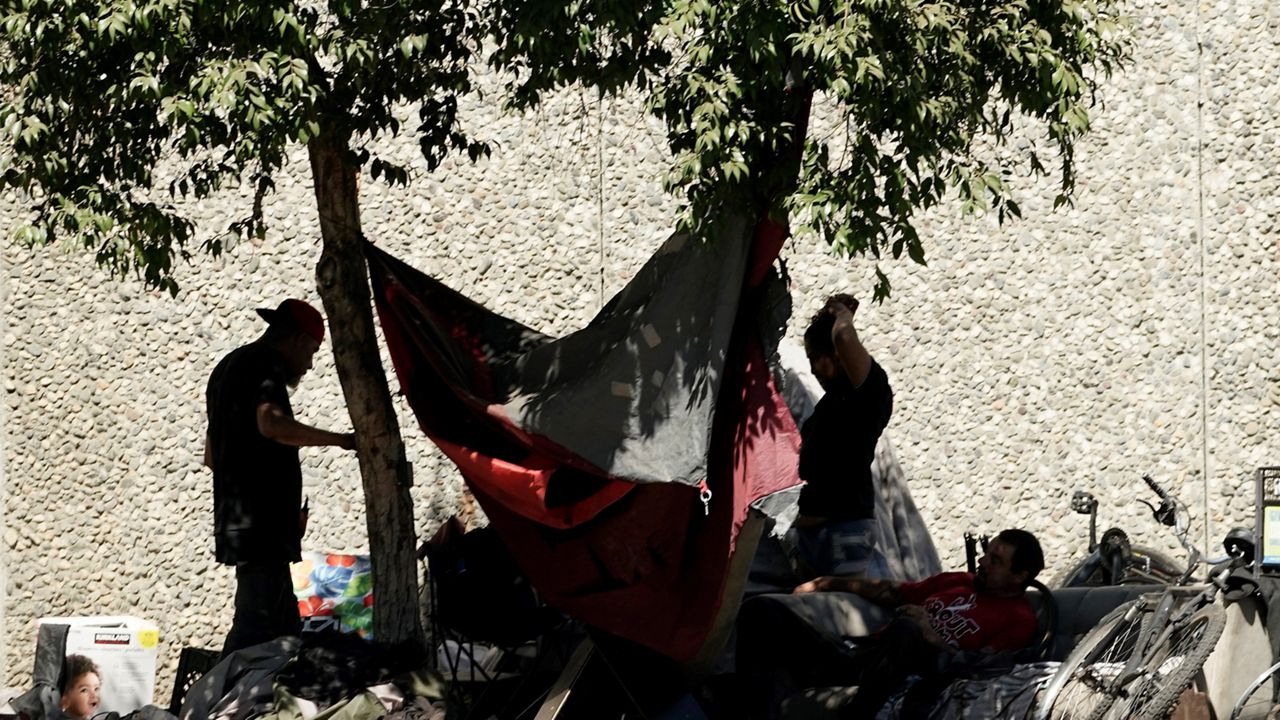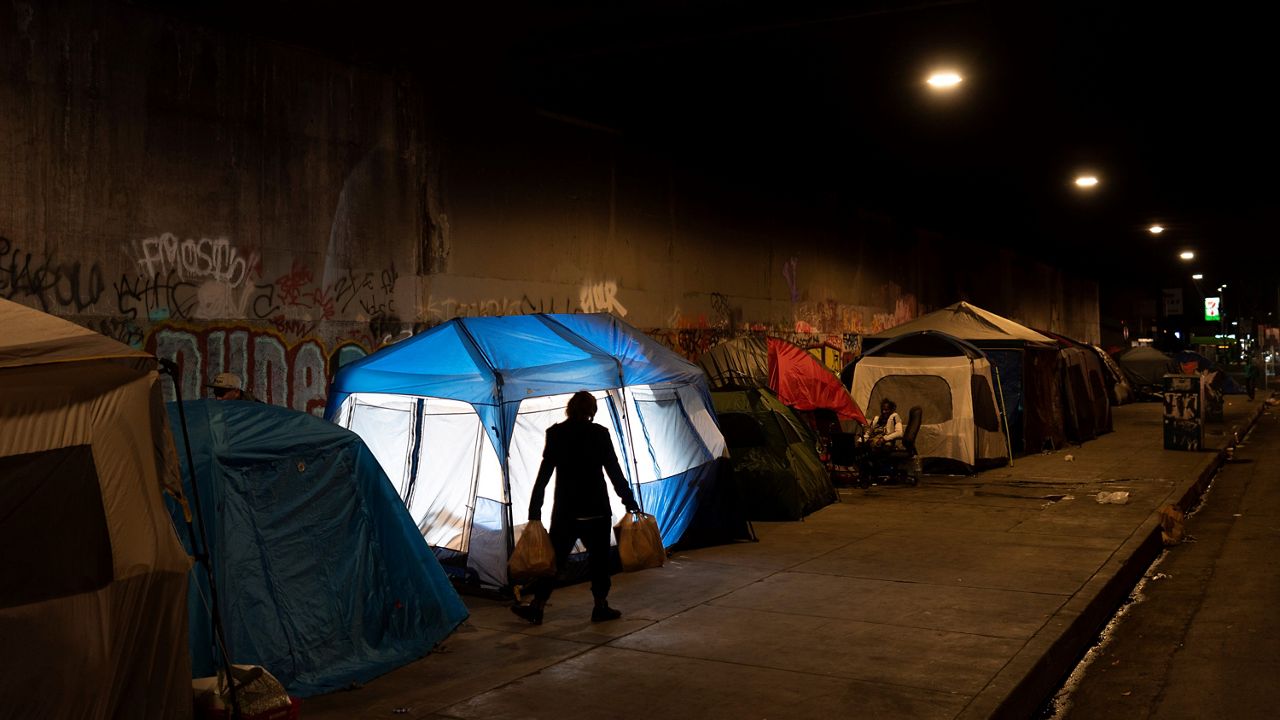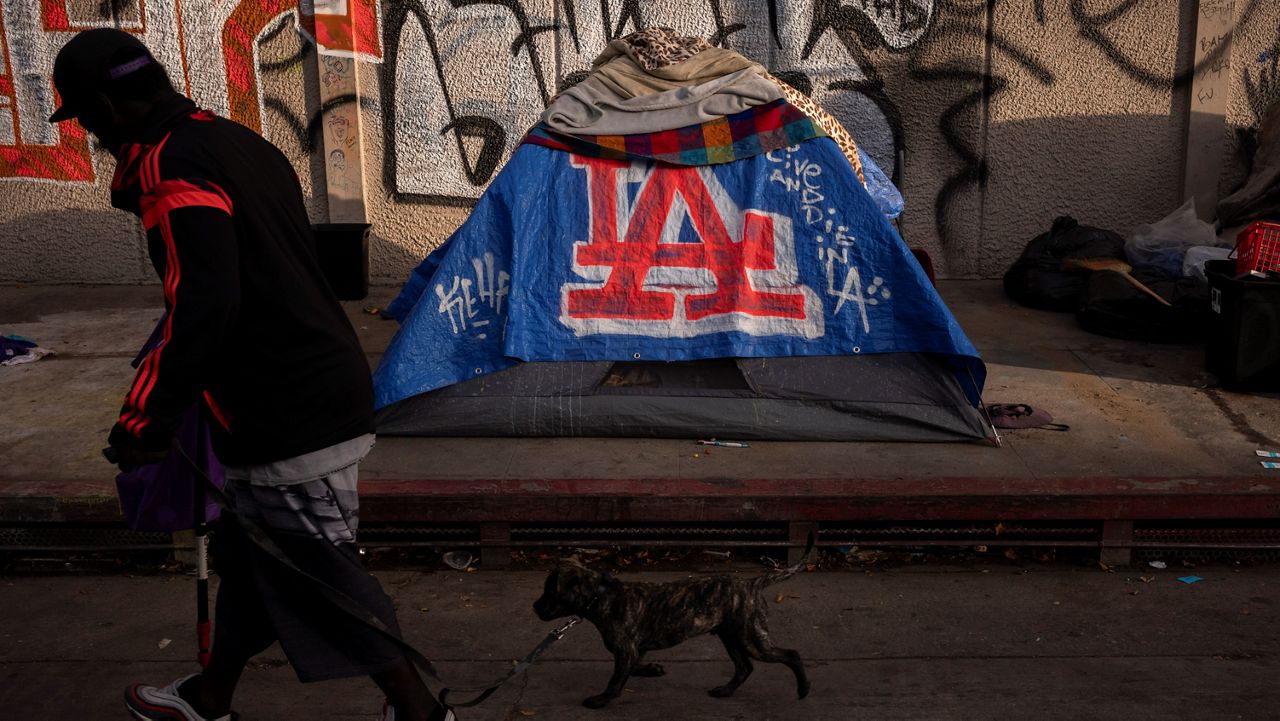LOS ANGELES — As a formerly homeless man in Skid Row, Reggie Carter finally has time to explore photo collaging ever since he moved into permanent housing just three weeks ago.
“This is the first time I’ve ever had my own place, so I’m very happy, and the space is much better than it was in the other place I was at. I am grateful,” Carter said.
Carter is one of many individuals who have found a place to call home at the 649 Lofts building in Skid Row. He will soon have access to a community health clinic just downstairs.
“It’s great because if I have any basic problems with minor medical issues, it’s good to have a place close. I don’t have transportation and stuff at this time,” Carter said.
The Joshua House Health Center, operated by the Los Angeles Christian Health Centers, will provide medical, dental, mental health, social services and more for more than 7,000 individuals in the Skid Row community. In the same complex, the Skid Row Housing Trust developed 54 studio units for permanent housing.
The building’s grand opening came at a time when a federal judge mandated the city and LA County provide housing options for homeless people living in the Skid Row area by the fall.
Antonio Le Mons, COO of Skid Row Housing Trust, believes this could be an opportunity to create more resources for people without housing.
"Everything is possible," he said. "I think the right set of minds and the people who pull the right levers can come together. We can solve this problem, and while there are many of us who have been working to solve it for quite some time, I think the pressure creates new opportunities for others to get involved and helping to put this to bed once and for all."
For Carter, it’s shown him a new perspective.
“I’m hoping that in the years to come, everyone will have some place to live. So, I’m thankful,” Carter said.
Carter's path to housing took about two years, but finding his footing is helping him move his life forward with a fresh start.











